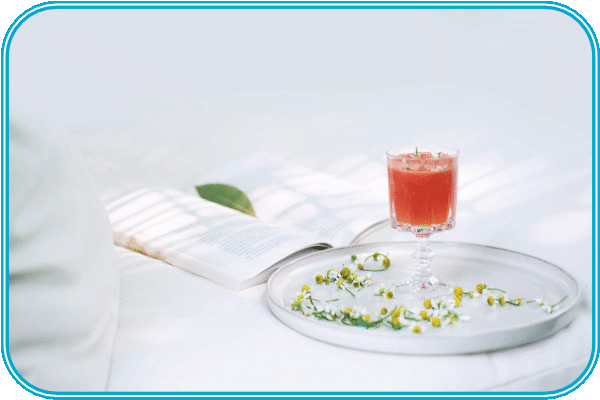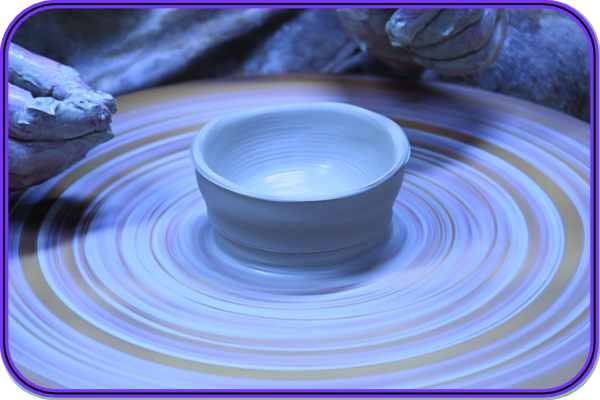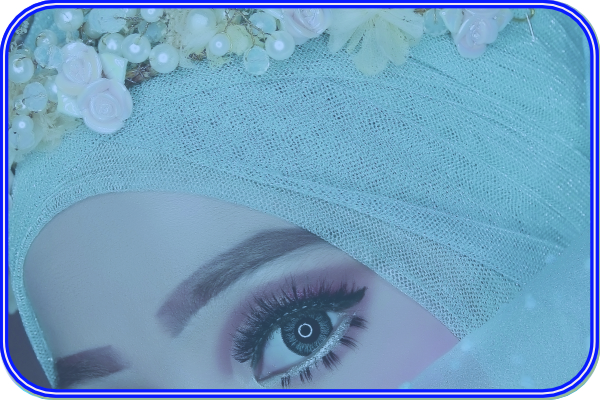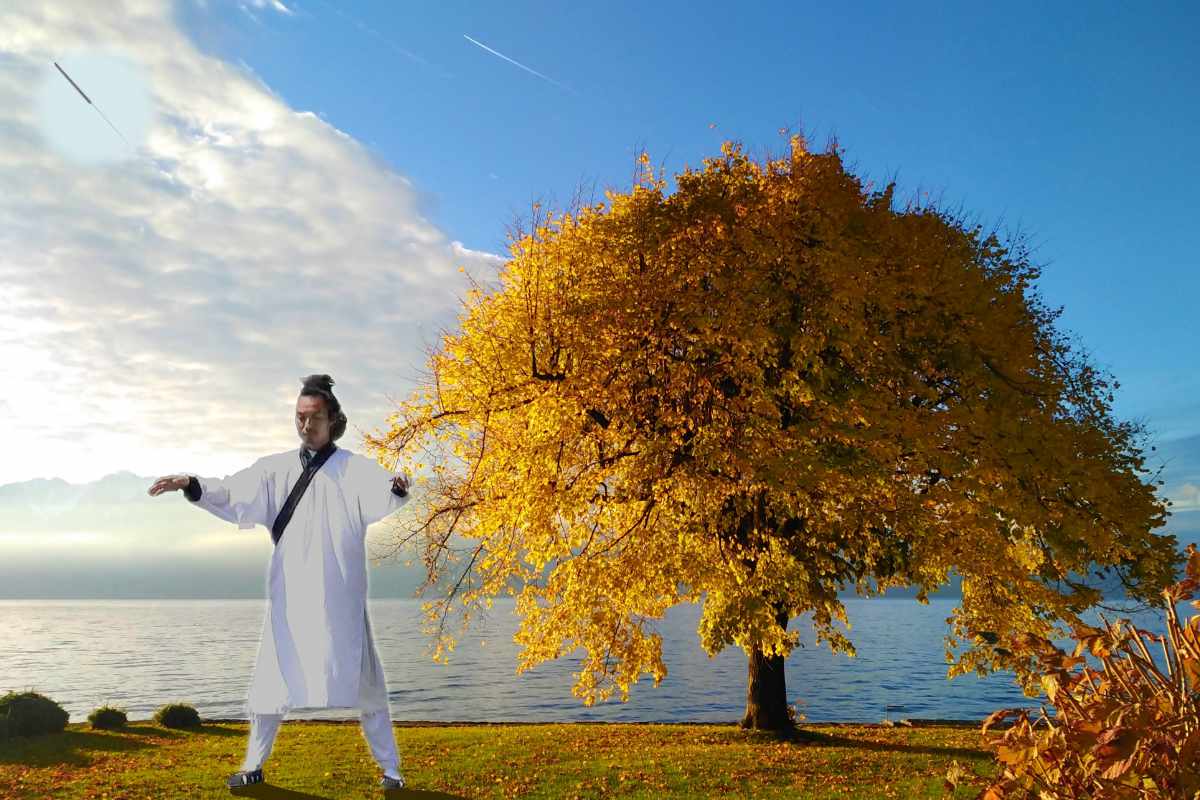The Wuji posture is a powerful healing tool
Wuji is both a Taoist principle and a Qi gong posture. It is the latter that we will be particularly interested in here. Wuji is indeed a practice of great apparent simplicity, and yet of infinite richness for those who wish to cultivate a healthy mind in a healthy body.
Wuji is the first posture of Qi Gong called Wu Dang. It is a posture that is practiced standing still. “Wuji” means “without extremes”. This term, originating from Taoist philosophy, refers to the state of undifferentiated chaos that precedes creation. It is therefore the origin of Taiji, the yin and yang movement. We can therefore say that Taiji is born from Wuji.
Wuji is the creative void in the sense of “creative mind”; it is a void full of consciousness.
The posture is practiced with the feet together or shoulder-width apart. The knees and elbows are relaxed, therefore not locked. The trunk is straight. The breathing is ample and natural. The gaze is distant. The practitioner observes his thoughts, without intervening in their flow, his mind is empty.
By emptiness, the Taoists do not mean nothingness, but rather a state of total potentiality, not yet manifested but containing all the possibilities of creation. The state of Wuji precedes manifestation, and therefore action.
For Taoists, the ultimate nature of our mind is absolute emptiness, in other words, absolute potential. Thus, consciousness in its ultimate nature of absolute potentiality, becomes absolute awakening. To fully embody Wuji, one must unify, reach the unity between body and mind (the ONE).
Develop your vital energy
By relaxing and emptying himself, the practitioner makes himself available. Like an antenna erected between the Earth (material world) and Heaven (spiritual world), he places himself in a state of receptivity. He becomes ready for everything and nothing at the same time. The practice of Wuji is therefore an invitation to enter into contact with the field of all possibilities in order to gradually order oneself internally, in total harmony with Nature.
With time, a few weeks or months of practice, the practitioner settles into this state of coherence and harmony. Practising the Wuji posture, in a prolonged and regular manner, increases awareness and presence to oneself.
The practice of Wuji allows the cultivation and development of the root energy of man, his vital energy, the Jing. It promotes the free flow of energy (Qi) and allows the participant to know the true nature of his or her mind.
Listening to the body increases vital energy and strengthens “mindfulness”; it develops compassion towards other beings, a quality that is essential for health.
What one feels in this practice is a sensation of calmness, which reaches the body and then gradually the mind. This calmness, with time, brings a feeling of serenity. The practice of Wuji is a form of standing meditation which allows us to cultivate our vital energy (our Jing); it therefore has a healing effect and increases longevity.
Moreover, we will notice in the practice that the more attentive we are to the surrounding perceptions, as well as to the internal sensations, the less active the mind is and the more energized we feel.
The prolonged practice of Wuji contributes to the deconditioning of the mind (ego) in its tendency to bring everything back to itself, to comment or judge everything, or to wander from one idea to another.
A stronger mind in a healthier body
Thus the regular practice of Wuji :
- prevents one from being the object of one’s emotions according to their whims. It allows you to distance yourself from them;
- helps to stabilize the agitated mind and improves the quality and duration of concentration;
- provides a kind of serenity and joy that extends beyond the practice into daily life. It is the beginning of a mutation that invites us to change our view of events in our lives, our relationships, others, our thought structures and our emotions. This gaze becomes more relaxed, more open, with an increased capacity to adapt.
This motionless posture therefore strengthens and cultivates the vital energy Jing; it improves the circulation of energy (Qi) in the meridians by making it more fluid. This has the effect of releasing energy blockages.
Moreover, the practice of Wuji, like all Qi Gong practices, contributes to strengthening our Spirit and improving the quality of our states of consciousness. Finally, it develops in us an increasingly sharp sense of awareness.
Wuji is therefore infinitely beneficial when it is practised with respect for its principles (correct posture, relaxation, breathing), as well as with regularity and constancy. Do not be deceived by its apparent simplicity. Because before reaching serenity, you may experience pain while tensions are being released, impatience, or even disturbing emotions.
Like many of these Chinese practices, the practice of Wuji requires real work, a commitment in the moment and over time. It is only at this price that it delivers all its treasures. And that we discover its wonderful healing power.
Some tips for your practice
Listen to your body: what is happening in your joints, your tensions, your breath. Observe, without judging, and constantly adjust your posture to achieve total relaxation. Relaxation is indeed the key.
Your posture, although relaxed, is straight. Make sure your back is straight. The weight of your body rests heavily on your feet. The upper body is light and as if suspended by a rope from the sky. This way the spine is completely free.
Slow down the cycle of your breathing and gradually increase its amplitude. This breathing is abdominal. By concentrating on your breathing, your body will gradually calm down, and nervous movements or impulsive reactions will cease during the practice.
However, it is important to remain joyful. Maintain a state of well-being and a benevolent outlook. Cultivate your inner smile and allow a feeling of fullness, and love, to flow through your body. Embrace these sensations with tenderness and gentleness.
For beginners it is recommended to be accompanied by a Qi gong or Tai chi master.







0 Comments